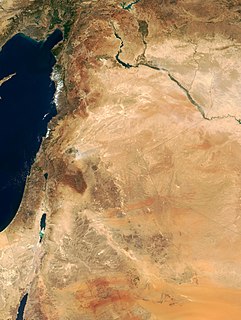
The 2nd century BC started the first day of 200 BC and ended the last day of 101 BC. It is considered part of the Classical era, although depending on the region being studied, other terms may be more suitable. It is also considered to be the end of the Axial Age. In the context of the Eastern Mediterranean, it is the mid-point of the Hellenistic period.
This article concerns the period 229 BC – 220 BC.

This article concerns the period 49 BC – 40 BC.
This article concerns the period 219 BC – 210 BC.
This article concerns the period 169 BC – 160 BC.
This article concerns the period 179 BC – 170 BC.
Year 219 BC was a year of the pre-Julian Roman calendar. At the time it was known as the Year of the Consulship of Paullus and Salinator. The denomination 219 BC for this year has been used since the early medieval period, when the Anno Domini calendar era became the prevalent method in Europe for naming years.

Year 216 BC was a year of the pre-Julian Roman calendar. At the time it was known as the Year of the Consulship of Varro and Paullus. The denomination 216 BC for this year has been used since the early medieval period, when the Anno Domini calendar era became the prevalent method in Europe for naming years.
Year 163 BC was a year of the pre-Julian Roman calendar. At the time it was known as the Year of the Consulship of Gracchus and Thalna and the First Year of Houyuan (後元). The denomination 163 BC for this year has been used since the early medieval period, when the Anno Domini calendar era became the prevalent method in Europe for naming years.
Year 164 BC was a year of the pre-Julian Roman calendar. At the time it was known as the Year of the Consulship of Torquatus and Longinus. The denomination 164 BC for this year has been used since the early medieval period, when the Anno Domini calendar era became the prevalent method in Europe for naming years.
Year 167 BC was a year of the pre-Julian Roman calendar. At the time it was known as the Year of the Consulship of Paetus and Pennus. The denomination 167 BC for this year has been used since the early medieval period, when the Anno Domini calendar era became the prevalent method in Europe for naming years.
Year 170 BC was a year of the pre-Julian Roman calendar. At the time it was known as the Year of the Consulship of Mancinus and Serranus. The denomination 170 BC for this year has been used since the early medieval period, when the Anno Domini calendar era became the prevalent method in Europe for naming years.

Perseus was the last king (Basileus) of the Antigonid dynasty, who ruled the successor state in Macedon created upon the death of Alexander the Great. He was the last Antigonid to rule Macedon, after losing the Battle of Pydna on 22 June 168 BC; subsequently, Macedon came under Roman rule.

Ptolemy VI Philometor was a Greek king of Ptolemaic Egypt who reigned from 180 to 164 BC and from 163 to 145 BC.

Antiochus IV Epiphanes was a Greek Hellenistic king who ruled the Seleucid Empire from 175 BC until his death in 164 BC. He was a son of King Antiochus III the Great. Originally named Mithradates, he assumed the name Antiochus after he ascended the throne. Notable events during Antiochus's reign include his near-conquest of Ptolemaic Egypt, his persecution of the Jews of Judea and Samaria, and the rebellion of the Jewish Maccabees.
The Third Macedonian War was a war fought between the Roman Republic and King Perseus of Macedon. In 179 BC, King Philip V of Macedon died and was succeeded by his ambitious son Perseus. He was anti-Roman and stirred anti-Roman feelings around Macedonia. Tensions escalated and Rome declared war on Macedon.
Gaius Popillius Laenas twice served as one of the two consuls of the Roman Republic, in 172 and 158 BC.

The Syrian Wars were a series of six wars between the Seleucid Empire and the Ptolemaic Kingdom of Egypt, successor states to Alexander the Great's empire, during the 3rd and 2nd centuries BC over the region then called Coele-Syria, one of the few avenues into Egypt. These conflicts drained the material and manpower of both parties and led to their eventual destruction and conquest by Rome and Parthia. They are briefly mentioned in the biblical Books of the Maccabees.

Laodice V was a Seleucid princess. Through marriage to Perseus king of Macedon she was a Queen of the ruling Antigonid dynasty in Macedonia and possibly later of the Seleucid dynasty.
Gnaeus Octavius was a Roman politician and general who served as consul in 165 BC and was the builder of the Porticus Octavia.








